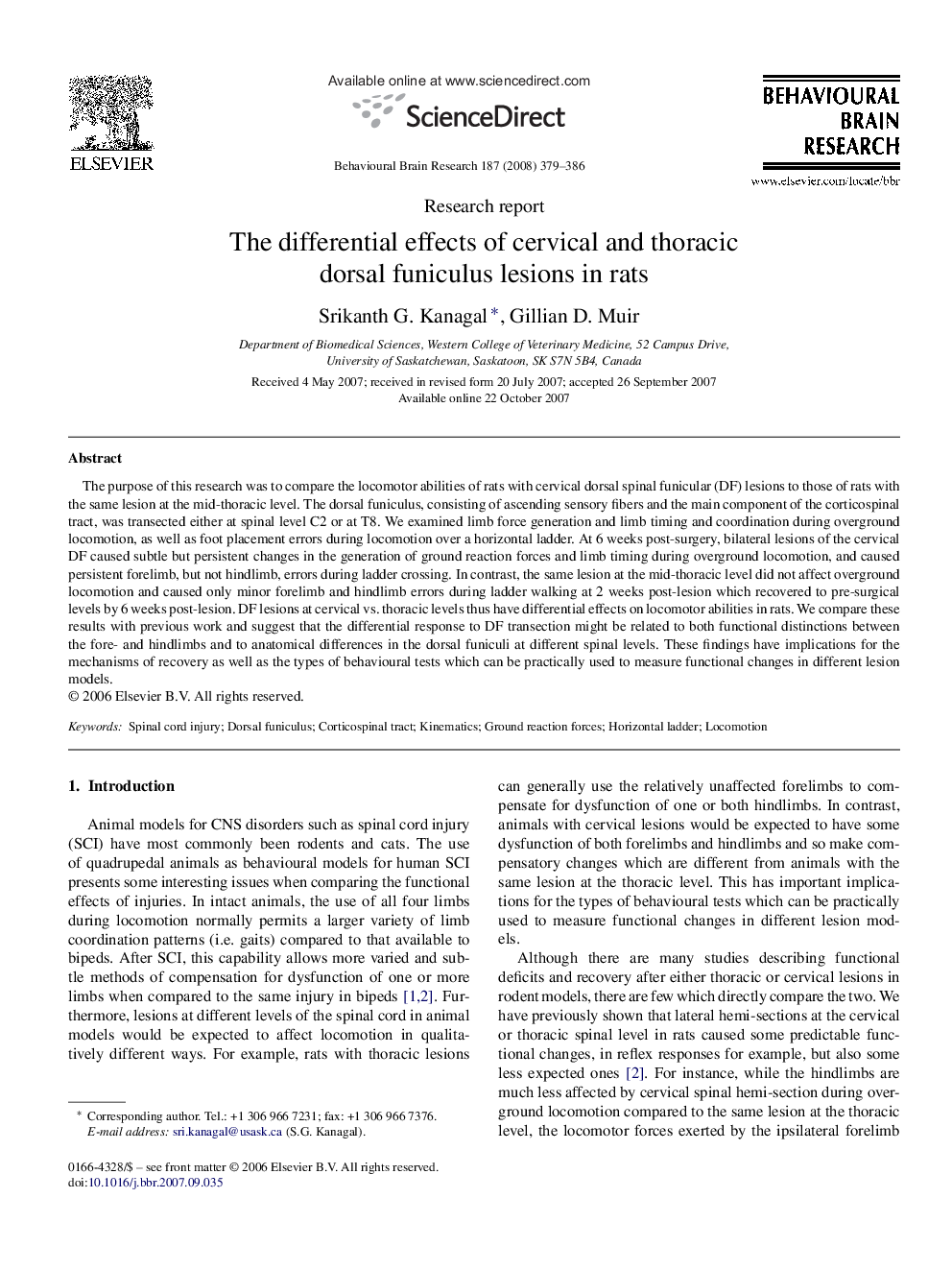| Article ID | Journal | Published Year | Pages | File Type |
|---|---|---|---|---|
| 4315532 | Behavioural Brain Research | 2008 | 8 Pages |
Abstract
The purpose of this research was to compare the locomotor abilities of rats with cervical dorsal spinal funicular (DF) lesions to those of rats with the same lesion at the mid-thoracic level. The dorsal funiculus, consisting of ascending sensory fibers and the main component of the corticospinal tract, was transected either at spinal level C2 or at T8. We examined limb force generation and limb timing and coordination during overground locomotion, as well as foot placement errors during locomotion over a horizontal ladder. At 6 weeks post-surgery, bilateral lesions of the cervical DF caused subtle but persistent changes in the generation of ground reaction forces and limb timing during overground locomotion, and caused persistent forelimb, but not hindlimb, errors during ladder crossing. In contrast, the same lesion at the mid-thoracic level did not affect overground locomotion and caused only minor forelimb and hindlimb errors during ladder walking at 2 weeks post-lesion which recovered to pre-surgical levels by 6 weeks post-lesion. DF lesions at cervical vs. thoracic levels thus have differential effects on locomotor abilities in rats. We compare these results with previous work and suggest that the differential response to DF transection might be related to both functional distinctions between the fore- and hindlimbs and to anatomical differences in the dorsal funiculi at different spinal levels. These findings have implications for the mechanisms of recovery as well as the types of behavioural tests which can be practically used to measure functional changes in different lesion models.
Keywords
Related Topics
Life Sciences
Neuroscience
Behavioral Neuroscience
Authors
Srikanth G. Kanagal, Gillian D. Muir,
